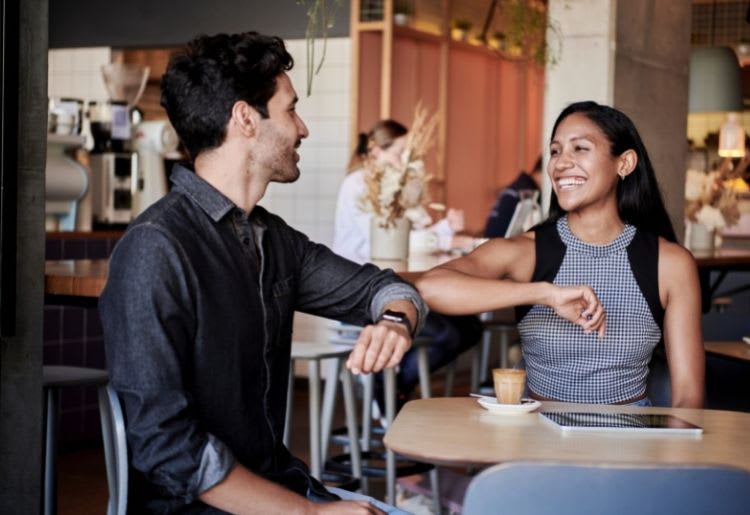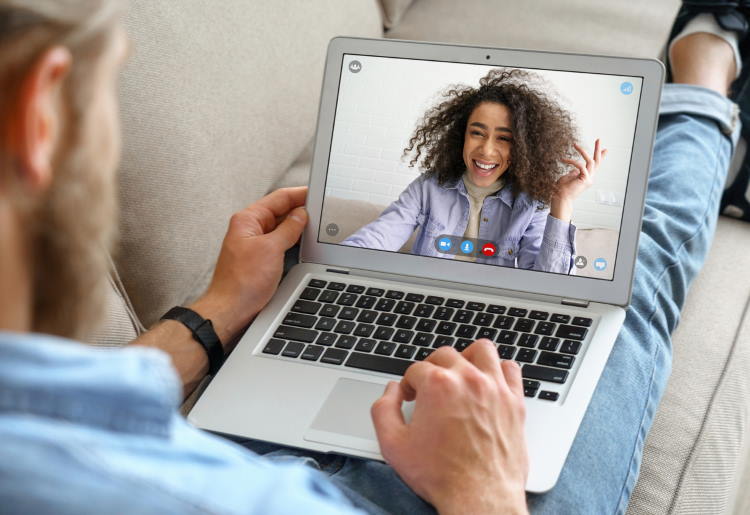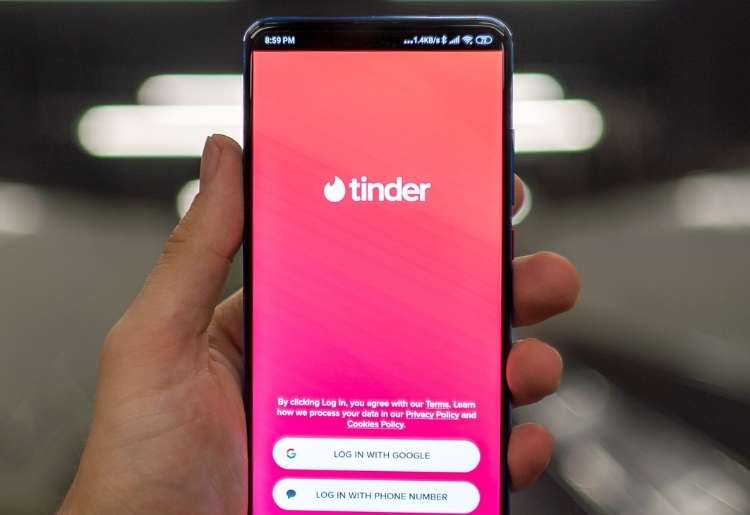Consider Margaret (30), who told us about moving from New York City to peaceful Asheville, North Carolina, seeking a lifestyle change. While she knew about dating apps for romantic connections, she discovered the hidden potential of apps like eharmony to find friends in her new area. Adjusting to her new surroundings became easier because these apps helped her "skip the awkwardness" often tied to making friends as an adult.
If you're in a similar boat or simply struggle to make friends like most people, you're in the right spot. In this guide, we'll explore intelligent ways to use dating apps for building friendships while prioritizing your comfort and safety in this virtual space.
» Have you considered the benefits of dating your best friend?
Friendship-Focused Dating Apps
In the era before the internet, friendships typically grew out of group activities, work-related interactions, and community gatherings. In the digital age, making new friends online has become increasingly common, with about 20-24% of US adults using dating apps for this purpose.
Clinical Psychologist Miriam Kirmayer (Ph.D.) notes that it's "not always feasible" to rely solely on our existing social connections or hobbies to make new friends. Dating sites and apps have become convenient and efficient for connecting with like-minded individuals.
These platforms are available 24/7, providing global reach and simplifying friend-finding. They offer features like icebreakers to ease into conversations and use algorithms to match users with people who share similar interests.
For example, Zoosk has a feature called "friend request" that allows you to send a request for friendship to other "Zooskers" to get noticed. You can also use their "Carousel" feature to find matches based on mutual interest quickly.
Additionally, various filters can help you refine your search, making the journey to forming new friendships more accessible and enjoyable.
The Art of Making Friends Online
Friendship apps may initially seem scary, but with a strategic approach, you can significantly increase your chances of forming meaningful connections.
Consider the following strategies to enhance your online friend-finding experience:
- Clarity is critical: From the beginning, avoid flirtatious words and clarify that you're looking for friendship, not romance.
- Photo selection: You can include one engaged in a solo activity and another showcasing a fun moment with friends to show your hobbies.
- Stay authentic: Honesty is the foundation of any relationship. Be genuine about your interests and values.
- Align with interests: If you hope to find a tennis partner or a book club buddy, indicate it clearly in your profile.
- Detailed descriptions: A detailed profile is about the richness of content. Highlight what kind of friend you're looking for and what activities you hope to share. This will make it easier for potential pals to start chatting with you.
How to Connect With Your Online Friends in Real-Life
If you're concerned about meeting your online friend for the first time, don't worry. There are ways to overcome social anxiety in online dating:
1. Break the Ice
For instance, you can ask about or comment on something you remember from their profile to get the conversation going. The more interest you show in the other person, the easier it'll be for them to engage. Your interactions shouldn't focus on what you can gain but on what you have to offer.
2. Gauge Your Compatibility
It can be challenging to tell if someone will make a decent friend just by reading their profile. But if their bio piques your interest, it's an excellent place to start. After a few conversations, you'll better understand whether you want to continue the friendship outside the app.
3. Pick an Appropriate Setting and Activity
A first-time, in-person meeting with an online friend can be exciting yet nerve-wracking. Opt for a public place like a coffee shop, a bustling park, or a popular restaurant for a safe setting. These locations offer a relaxed atmosphere and the presence of other people, ensuring a comfortable and secure environment.
After participating in an activity together, consider meeting somewhere where you can talk more to see if the friendship might have more depth. Set realistic expectations for your first few encounters with a potential friend. Understand that not every interaction will spark an immediate bond, and that's okay. Friendships take time to build and flourish.
4. Let the Friendship Grow at Its Own Pace
Give yourselves the chance to gradually get to know each other without pressuring yourselves to click instantly. Remember that balancing online and offline activities can also be a challenge. Factors like time spent in real-life meetups, geographical proximity, and scheduling can play a part.
But you can overcome this by prioritizing your commitments and staying open to clear communication.
5. Set Boundaries
Finally, remember to set clear boundaries. Explain the importance of building trust gradually and respecting each other's expectations and limitations.
Another safety measure is to let someone you trust know where you will be. Have a backup plan or an exit excuse ready if the meeting doesn't go as expected. This will give you an easy way to leave the situation if necessary.
Common Hurdles on Friendship Apps
1. Unwanted Romantic Interest
On friendship apps, it's common to receive messages indicating more than just friendship. To handle these situations, it's best not to respond. Any reply can encourage further contact, so ignoring these messages is an excellent way to avoid difficult conversations later. However, a person usually stops messaging after a long enough silence.
EliteSingles has a feature called “Have You Met,” which allows you to search through their extensive member database and filter out bad matches. Ourtime and BlackPeopleMeet have "Match" features that let you view profiles of users outside your preferences.
2. A Lack of Engagement
It's common to find people who don't respond on friendship platforms like dating apps. The key is to keep going and let go of those who don't reply. It's important to not get discouraged. Remember, only some people you meet will be great friends.
You can also learn how to take a good profile picture by yourself and adjust your bio to clarify your expectations. Another tactic is to use personalized messages about others' profiles to inspire replies. Generic statements are easy to brush over and ignore.
eharmony has a unique feature called “Guided Communication” to help you if you'd like some ideas to initiate conversation.
3. Online Ghosting
It's rough dealing with ghosting, no doubt. Remember, it's not worth wasting time on someone who won't do the same for you. Good friendships thrive on mutual effort and understanding.
So, focus on those who value your time and reciprocate your efforts for a solid and lasting connection. Keep a positive outlook on socializing. Don't let ghosting discourage future attempts at making friends.
4. Moving From Online to In-Person
Once you've hit all the green flags in the talking stage and want to meet in person, transitioning to face-to-face meetings can be tricky. You should try to meet up in public places first. You could grab coffee together or stroll in a gallery during lunchtime for a relaxed and safe setting. A place that sparks both your interests will help to keep the conversation flowing.
If someone keeps dodging offline meetings, it's time to rethink how much effort you want to put into that friendship. While new to a connection, learn how to identify catfish profiles to avoid getting scammed.
» Find out how dating app background checks work.
5. Not Finding Success
Whether platonic or romantic, making new friends is important but tough. Try not to take a lack of connection on a particular app personally.
Sometimes, it's not the right platform or the timing might be off. If you're not finding connections, try switching to a different app to widen your possibilities.
Group Activities on Friendship Dating Apps
Friendship apps also offer the option to meet in groups or create communities according to your interests. Whether it's a love for literature, a passion for hiking, or an interest in tech, these apps provide a space where people can find others with similar hobbies and preferences.
A group dynamic often makes it easier for individuals to interact as there's a common ground that serves as a conversation starter, reducing the awkwardness that can accompany one-on-one meetings. These communities often plan regular activities or meetups. Joining a group activity not only helps in building connections but also in nurturing a sense of community and belonging.
For example Stir has a "Stir Events" feature that allows you to attend events organized by the app or other users. Dating.com also has a social feature. Live Streams enable you to participate in live events to connect with other users.
The effectiveness these friendship app groups depends on their size. When there are too many people, the environment can become too intense, making it difficult for members to actively participate and connect with each other.
But if there are too few participants, there might need to be more different views and talking points. So, it's all about finding that sweet spot. A decent-sized crowd lets everyone share their thoughts and keeps it cozy enough for everyone to participate comfortably.
This balance ensures different ideas are shared, making conversations exciting and allowing people to bond over authentic dialogue. The right size group lets everyone feel included and enjoy hanging out on friendship app communities.
In addition, a group setting can remove the pressure of direct interactions, making it easier to initiate chats in general and helping you feel more relaxed.
How to Use Group Features on Friendship Apps
- Join existing groups: Many friendship apps have communities based on interests. Browse through them and join the ones that resonate with you.
- Create a group: If you have a unique hobby or interest, consider starting your own group. This will attract like-minded individuals and allow you to organize events.
- Participate actively: Attend discussions and contribute to your group's dynamic. Active participation increases your chances of forming meaningful connections.
Dating Apps: The Key to Making New Friends
Apps are the newest helpful tool for making new friends. If you're looking for intellectual people, EliteSingles is one possibility to try. You can also try these Bumble alternatives that offer focused forums for finding friends, which is particularly handy if you're new in town or traveling for a long time.
You can also try apps like Match that will give you access to various potential friendship groups and like-minded communities.
» Keep safe and avoid fake dating sites.


